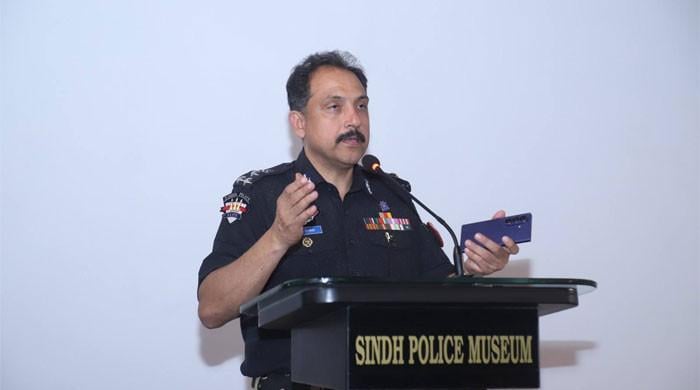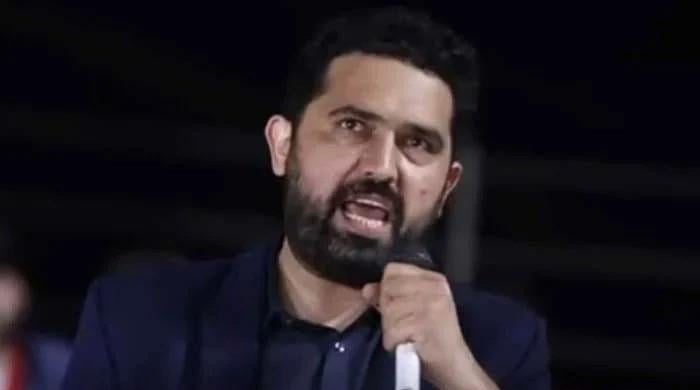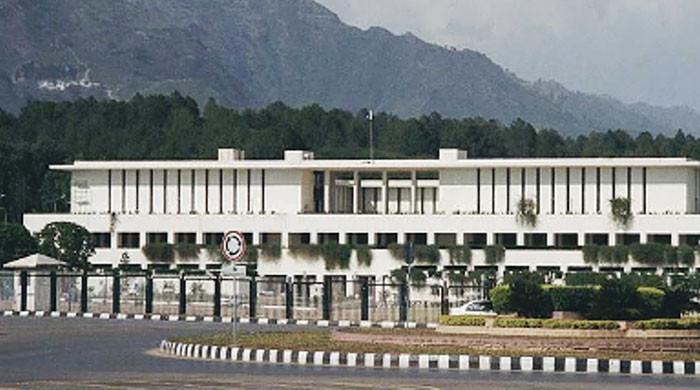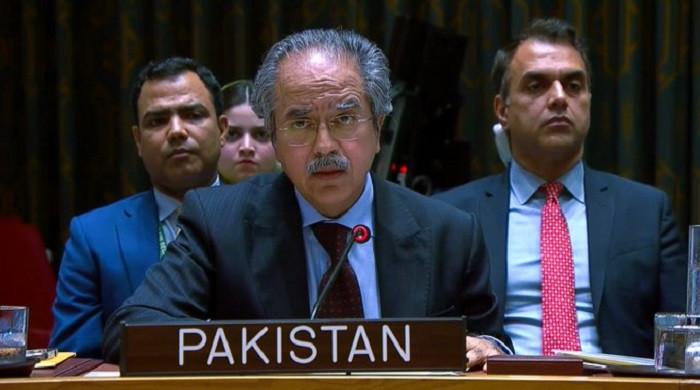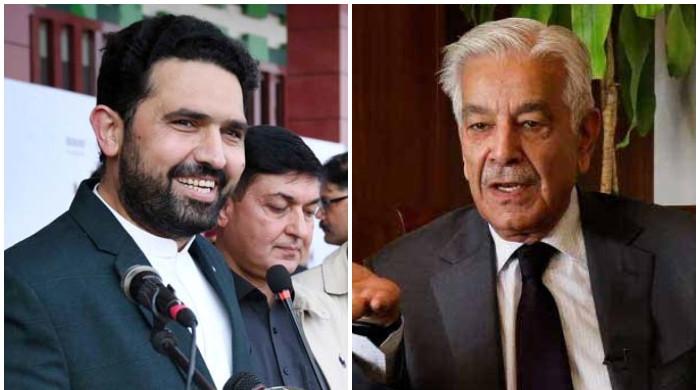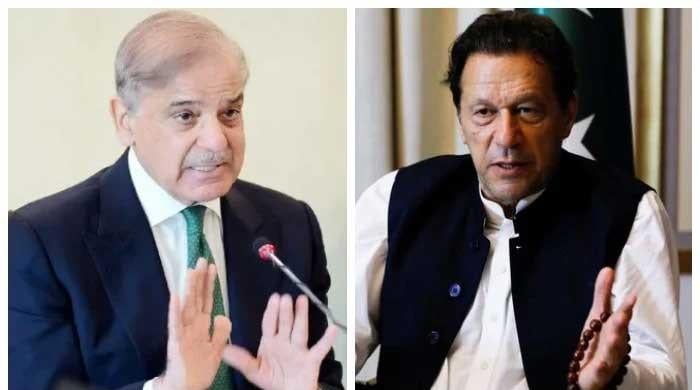Fate of 11000 students hangs in the balance as Turkey demands closure of Pak-Turk schools
Turk ambassador to Pakistan had demanded closure of all Pak-Turk schools and colleges
July 30, 2016

ISLAMABAD: The future of 11,000 plus students and 1,500 teachers hangs in the balance as the PML-N government has received new request-cum-demand from the Turkish authorities to manage the transfer of ownership of 23 Pak-Turk International schools and colleges from the current owners, Pak-Turk Education Foundation, to the Maarif Foundation -- an official subsidiary of the Turkish government, it was learnt.
A few days back, the Turkish ambassador to Pakistan had through a press conference demanded closure of all the Pak-Turk schools and colleges, linking them with the Hizmet movement and the United States-based Turk religious cleric Fatehullah Gulen whom the Turkish government blames for orchestrating the mid-July failed coup.
The official demand has now apparently been watered down to transfer ownership/administration of these educational institutions to the official Maarif Foundation tasked by the Turkish government to encourage foreign governments to seize other Turkish educational foundations operating in those countries, possibly targeting enterprises run by individuals close to
US-based Islamic scholar Fethullah Gülen, an ally-turned-nemesis of the government. In the event of these seizures, the Maarif Foundation will be offered as an alternative foundation with the authority to buy, take over and rent them, Turkish daily Cumhuriyet reported on May 23, this year, nearly two months before the failed July coup.
Meanwhile, officials of the Pak-Turk Educational Foundation while pleading their non-political and strictly educational and social welfare oriented work across Pakistan for the last 21 years, maintain that they are ready to clarify their position at any fora. And knock the doors of independent Pakistani judiciary, if need be.
“We do unequivocally clarify that the Pak-Turk International schools and colleges in Pakistan have no affiliation or connection with any political individual or any movement or organization, whether political, religious or denominational, nor do we have a financial relationship with any movement”, a spokesperson for the Pak-Turk Foundation said while responding to queries of The News.
“We consider it important to underline that management of the schools and colleges is driven solely on humanitarian considerations and would see with concern any indication to club the Pak-Turk International
Schools and Colleges with any individual or movement and, in such a case, reserve right to invoke appropriate legal action,” the spokesman reiterated.
Turkey demanded these schools be closed many months ago
The Pakistani government circles however reveal that the Tayyip Erdogan government had in fact taken up the matter to close down Pak-Turk school and colleges at an unofficial level with the Punjab Chief Minister Shahbaz Sharif, many months back. But there was no headway.
The latest deviation from the original demand to close the Pak-Turk educational institutions, and instead transfer their administration/ownership to Maarif Founation comes on the heels of strong opposition of the move coming from different segments of Pakistani society. The fact that the Pak-Turk Education Foundation, a duly registered NGO, is operating these schools and colleges for the last 21 years under Pakistani laws, makes it difficult for the Pakistani government to fulfill the latest demand to transfer the ownership and administration of the educational institutions.
The Turkish government’s demand was however taken very seriously by Pakistan’s Foreign Office as Foreign Secretary had chaired a high level meeting to explore possibilities in the wake of close relations both countries enjoy.
PTI Chief Imran Khan was however the first politician to oppose closure of Pak-Turk schools expressing concern for the future of thousands of students as Information Minister Pervaiz Rashid had recently hinted at adopting a tactful policy to address concerns of the Turkish government while making sure Pakistani government decision should not cause damage to the students.
On the face of it, the federal government in Pakistan maintains that education being a provincial matter is being taken care of by the provinces. And the government has officially written to the provinces for their input on this matter before taking a final decision.
Still, the government insiders think of it as a very tricky situation as a one-sided government move under pressure from a close ally country may cause a wide spread resentment in case thousands of students are made to suffer.
But, lately, influential voices within the Pakistani government are on the rise pleading with ruling Sharifs that these educational institutions should be kept out of political wrangling and blame game initiated in a foreign country.
Taking a page from Kyrgyzstan
Lately, the Ministry of Foreign Affairs, Kyrgyzstan came up with this statement after demands to close privately run schools by people of Turkish descent allegedly having links with Fatehullah Gulen’s Hizmet movement:
“We have carefully studied the statement by Mr Mevlut Cavusoglu, Turkish Minister for Foreign Affairs, on some of educational institutions in Kyrgyzstan. Republic of Turkey is a brotherly country for Kyrgyzstan, our peoples have deep-seated historical bonds."
“We understand the worried stance of the Turkish officials. However, along with this, firstly we would like to remind that Kyrgyzstan is an independent and sovereign country which can decide about what's right or wrong for itself. We would like to emphasize that we consider it unbefitting and wrong for a minister of a foreign country to state through the tongue of ultimatum and blackmailing how another country should behave on an issue,” the statement said.
“In addition to certain legal norms, there are also the liabilities of the parties and other issues. Yet, if we need to highlight again, such issues are our own internal matters only and of Kyrgyzstan's concern only,” the statement concluded.
Erdogan close to the Sharifs
Historically, Turkey and Pakistan enjoy close, brotherly relations. And Prime Minister Nawaz Sharif and Punjab Chief Minister Shahbaz Sharif enjoy personal rapport with the Turkish President Tayyip Erdogan.
A large segment of Pakistani society was also overwhelmed with joy after failure of the Turkish coup thinking of it as a good omen for democracy, rule of law and human rights. But lately concerns were expressed over the way a ruthless purge was launched by the Erdogan government that ousted thousands of teachers, deans and heads of educational institutions, and detained hundreds of judges, thousands of government employees, police and Army personal. The figure of ousted/purged government employees now reaches around 100,000, various western media outlets claim. Till now around 127 generals and 32 admirals and hundreds of army personal have been rounded up. Many of them for their alleged links with the religious cleric
Fatehulleh Gollan who Turkey’s President and the powerful ruling party blame squarely as the main architect of the failed coup. And demand his extradition from the US. Some government run newspapers have even come up with stories linking a US general with the coup leaders. The allegations have been vehemently denied by the American officials, asking the Erdogan government to come up with concrete evidence that links Gulen with the coup leaders. Gulen and his movement have strongly denied these allegations terming it a plan of Erdogan government to strengthen its autocratic rule.
Another matter of great concern was the way scores of private media outlets (television stations, newspapers and news agencies) were closed down, taken into state control. According to the government decree, three news agencies, 16 television stations, 23 radio stations, 45 daily newspapers, 15 magazines, and 29 publishing houses have been shut down. Lately, more than 42 prominent Turkish journalists were also detained amidst concerns that President
Erdogan is trying to impose a strictly autocratic rule, and would clamp down and suppress independent voices, and dissent.
—Originally published in The News





